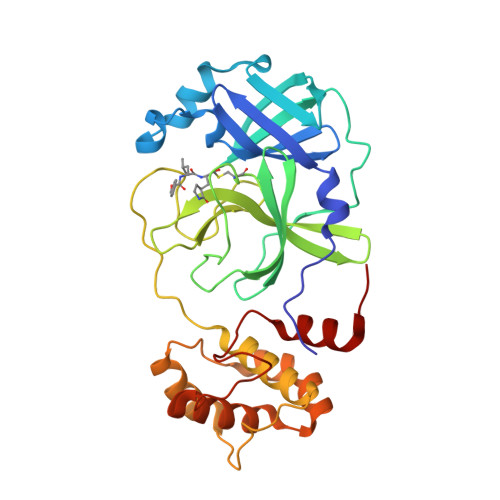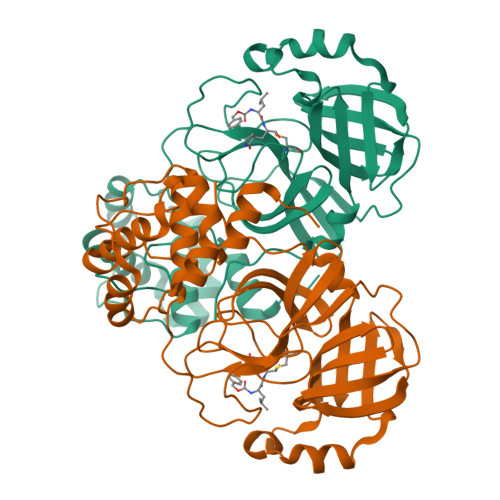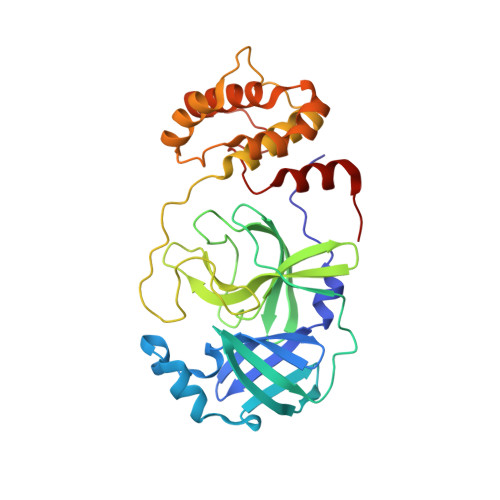Naturally occurring mutations of SARS-CoV-2 main protease confer drug resistance to nirmatrelvir.
Hu, Y., Lewandowski, E.M., Tan, H., Zhang, X., Morgan, R.T., Zhang, X., Jacobs, L.M.C., Butler, S.G., Gongora, M.V., Choy, J., Deng, X., Chen, Y., Wang, J.(2022) bioRxiv
- PubMed: 36119652
- DOI: https://doi.org/10.1101/2022.06.28.497978
- Primary Citation of Related Structures:
8D4J, 8D4K, 8D4L, 8D4M, 8D4N - PubMed Abstract:
The SARS-CoV-2 main protease (M pro ) is the drug target of Pfizer’s oral drug Paxlovid. The emergence of SARS-CoV-2 variants with mutations in M pro raised the alarm of potential drug resistance. In this study, we identified 100 naturally occurring M pro mutations located at the nirmatrelvir binding site, among which 20 mutants, including S144M/F/A/G/Y, M165T, E166G, H172Q/F, and Q192T/S/L/A/I/P/H/V/W/C/F, showed comparable enzymatic activity to the wild-type (k cat /K m <10-fold change) and resistance to nirmatrelvir (K i >10-fold increase). X-ray crystal structures were determined for seven representative mutants with and/or without GC-376/nirmatrelvir. Viral growth assay showed that M pro mutants with reduced enzymatic activity led to attenuated viral replication. Overall, our study identified several drug resistant hot spots that warrant close monitoring for possible clinical evidence of Paxlovid resistance. Paxlovid resistant SARS-CoV-2 viruses with mutations in the main protease have been identified from clinical isolates.
Organizational Affiliation:
Department of Medicinal Chemistry, Ernest Mario School of Pharmacy, Rutgers, the State University of New Jersey, NJ, 08854, United States.

















